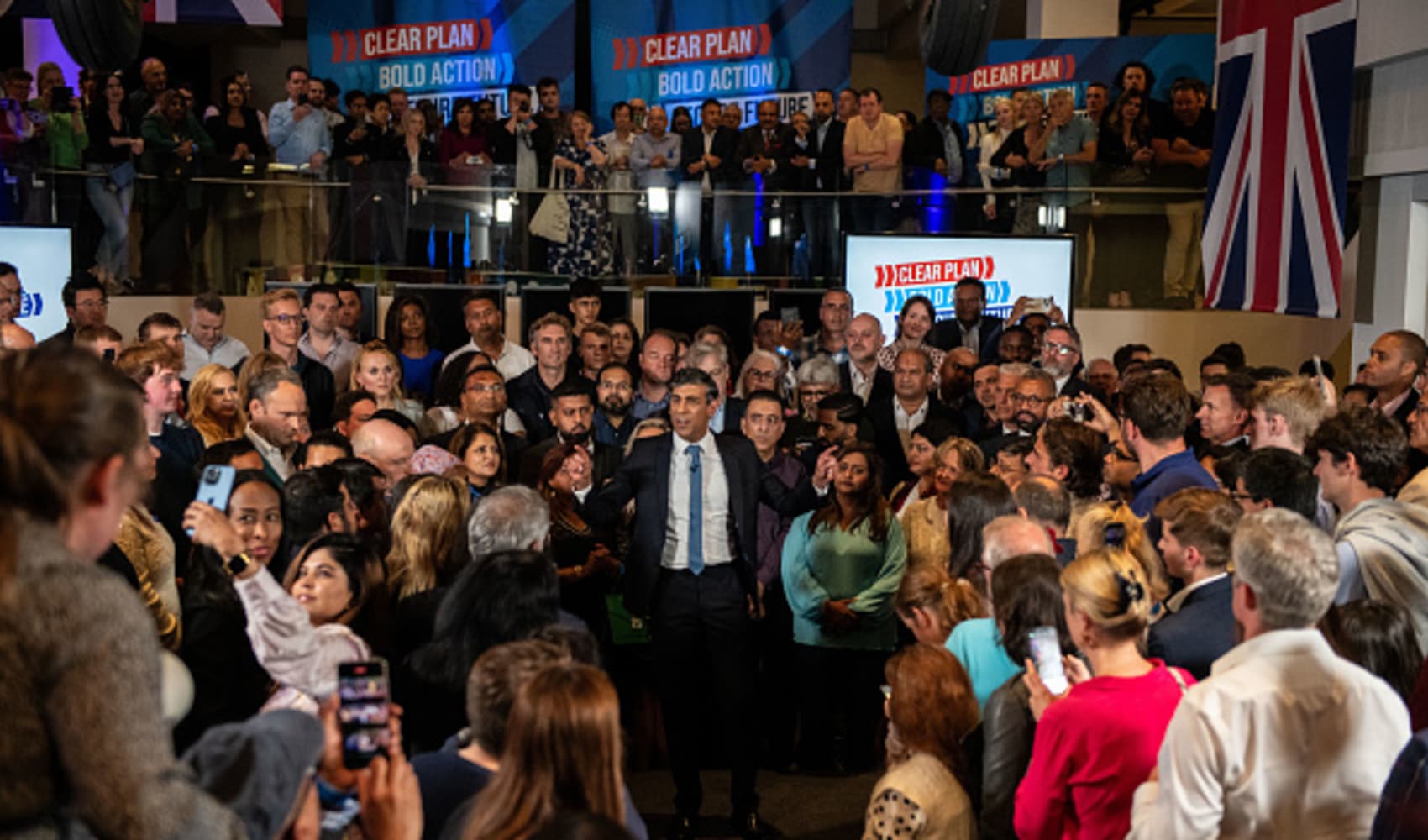
- Iran is headed for a runoff election on Friday, July 5, that will see an ultra-right-wing hard-liner compete against a reformist during a time of intense economic, social and geopolitical challenges.
- Amid record-low voter turnout of around 40% in the election's first round Friday, two dramatically different candidates emerged on top.
- Reformist candidate Masoud Pezeshkian came out ahead with 10.4 million of 24.5 million votes cast, while hard-line former nuclear negotiator Saeed Jalili was just behind with 9.4 million votes.

Iran is headed for a runoff election on Friday, July 5, that will see an ultra-right-wing hard-liner compete against a reformist during a time of intense economic, social and geopolitical challenges for the Middle Eastern country.
The runoff will allow all 61 million eligible Iranian voters to cast their ballots after no presidential candidate managed to win a majority when the country initially voted on June 28 in a snap election, following the death of former Iranian President Ebrahim Raisi in a helicopter crash in May.
Get Connecticut local news, weather forecasts and entertainment stories to your inbox. Sign up for NBC Connecticut newsletters.
Amid record-low voter turnout of around 40% on Friday — the lowest of any presidential election in the Islamic Republic's 45-year existence — two dramatically different candidates emerged on top.
Reformist candidate Masoud Pezeshkian came out ahead with 10.4 million of 24.5 million votes cast, while hard-line former nuclear negotiator Saeed Jalili was just behind with 9.4 million votes.
The two other candidates in Friday's race — Iranian Parliament Speaker Mohammad Bagher Qalibaf and Shiite cleric Mostafa Pourmohammadi — received 3.3 million votes and roughly 206,000 votes, respectively. Two additional candidates of the six approved to run by Iran's ultra-conservative Guardian Council had dropped out of the race on Thursday. All the candidates are seen as deeply conservative and anti-Western except for Pezeshkian.
Money Report
A former nuclear negotiator, Jalili currently serves as a representative for Iran's supreme leader, Ayatollah Ali Khamenei, on the Supreme National Security Council, known to be the most hard-line wing of the regime and its highest security body. Jalili, 58, is one of the furthest right-wing candidates approved to run in the snap election and is a longtime Iranian government insider, but has also had several failed attempts at running for office.
Pezeshkian meanwhile, is by far the most moderate of Iran's presidential candidates. He formerly served as minister of health under Iran's last reformist president, Mohammad Khatami, from 1997 to 2005, and Khatami among other reformist politicians have endorsed him.
The 69-year-old Pezeshkian has also been a member of parliament since 2008. He is a member of the Islamic Consultative Assembly and the vice speaker of parliament. He wants to loosen social restrictions like Iran's strict hijab law and improve relations with the West, including potentially restarting nuclear talks with world powers.

The election comes at a fraught time for the country of 88 million, and turnout so far has been low. Iranians will go to the polls against the backdrop of a battered economy, widespread popular discontent and harsh crackdowns on dissent. Iran is also dealing with high inflation, heavy Western sanctions, mounting tensions with the U.S., ramped-up Iranian nuclear enrichment and the Israel-Hamas war.
The first-round result for the reformist Pezeshkian, whom many analysts previously described as a second-tier candidate with little name recognition, came as a surprise to many observers.
Pezeshkian "absolutely does" have a chance to win the presidency, Nader Itayim, Mideast Gulf editor at Argus Media, told CNBC. "But," he said, "I think it will come down to turnout and his ability to get some of those disenchanted voters to come out and participate."
The result also hinges on whether the votes for Qalibaf and other conservatives no longer running, will go to Jalili.
Itayim said he did not expect higher turnout this time compared with the previous record-low turnout for a presidential vote — 48.8% — which took place during the 2021 race that elected the hard-line former President Raisi.
"But I certainly didn't imagine it would fall to 40%," Itayim said. "And 40% even with a bona fide reformist on the ballot, it really does say something."
While Iran's regional and foreign policy is largely dictated by its Supreme Leader Khamenei rather than the country's president, the election result could still impact Iran's policy toward the U.S., said Trita Parsi, executive vice president of the Quincy Institute.
"Pezeshkian has argued for the need to engage the U.S. in direct talks and will likely bring back the foreign policy team that negotiated the nuclear deal," Parsi said. "Jalili, a hard-line conservative who opposed the Iran nuclear deal, opposes it."






